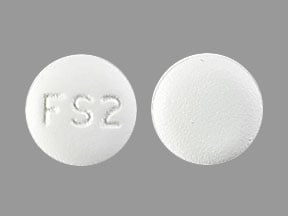
Benicar Coupons & Savings Card – Discount Prices from $16.55
Brand for: Olmesartan
My prescription
Edit
20MG, Olmesartan (90 Tablets)
Select pharmacy

CVS
$30.01
COUPON PRICE
Walmart
$16.55
COUPON PRICE
Albertsons
$21.67
COUPON PRICE
Walgreens
$24.82
COUPON PRICEBenicar savings card
Show this card to your pharmacist
Walmart
$16.55
BIN
ID
PCN
GRP
019876
LH3534AE46
CHIPPO
LHX
Powered by
Related ARBs prescriptions
More prescriptions for hypertension
Related ARBs prescriptions
More prescriptions for hypertension
Price history for Benicar (brand) & Olmesartan (generic)
90 Tablets, 20MG
Average retail price for Benicar
Average retail price for Olmesartan
Average SaveHealth price for Olmesartan
Our price history data is based on aggregated prescription data collected from participating pharmacies in America. Our prescription data updates daily to reflect the latest price changes. If you notice a missing data point, it means there wasn't sufficient data available to generate a monetary value for that date.
Over the last 12 months, the average discount price of Benicar is $49.42 using the SaveHealth savings card. That's an average savings of 97.01% on Benicar with our discount card.
*Retail prices are based on pharmacy claims data, and may not be accurate when we don't have enough claims.
Benicar (Olmesartan) dosage forms
Dosage Quantity Price from Per unit 5MG 30 Tablets $4.56 $0.15 5MG 90 Tablets $15.17 $0.17 5MG 1000 Tablets $67.50 $0.07 20MG 90 Tablets $16.55 $0.18 20MG 30 Tablets $5.02 $0.17 20MG 1000 Tablets $67.50 $0.07 40MG 30 Tablets $6.33 $0.21 40MG 90 Tablets $20.48 $0.23 40MG 1000 Tablets $84.70 $0.09
| Dosage | Quantity | Price from | Per unit |
|---|---|---|---|
| 5MG | 30 Tablets | $4.56 | $0.15 |
| 5MG | 90 Tablets | $15.17 | $0.17 |
| 5MG | 1000 Tablets | $67.50 | $0.07 |
| 20MG | 90 Tablets | $16.55 | $0.18 |
| 20MG | 30 Tablets | $5.02 | $0.17 |
| 20MG | 1000 Tablets | $67.50 | $0.07 |
| 40MG | 30 Tablets | $6.33 | $0.21 |
| 40MG | 90 Tablets | $20.48 | $0.23 |
| 40MG | 1000 Tablets | $84.70 | $0.09 |
Is Benicar a good blood pressure medicine?
Benicar, which contains the active ingredient olmesartan, is an angiotensin II receptor blocker (ARB) commonly prescribed to treat high blood pressure. It is generally considered effective for managing hypertension and is well-tolerated by many patients. However, the suitability of Benicar for an individual depends on their specific health condition, medical history, and any other medications they may be taking. It is important for patients to consult with their healthcare provider to determine if Benicar is the right medication for their blood pressure management.
Is Benicar a beta blocker or ACE inhibitor?
Benicar is neither a beta blocker nor an ACE inhibitor. It is an angiotensin II receptor blocker (ARB) used to treat high blood pressure.
What is the most common side effect of Benicar?
The most common side effect of Benicar (olmesartan) is dizziness. This can occur as the body adjusts to the medication, particularly when standing up quickly.
Is Benicar hard on the kidneys?
Benicar (olmesartan) can potentially affect kidney function, especially in individuals with pre-existing kidney conditions or those who are dehydrated. It is important for patients taking Benicar to have their kidney function monitored regularly by their healthcare provider. If there are any concerns about kidney health, it is advisable to discuss them with a healthcare professional.
Is olmesartan an ACE inhibitor or beta blocker?
Olmesartan is neither an ACE inhibitor nor a beta blocker. It is classified as an angiotensin II receptor blocker (ARB).
